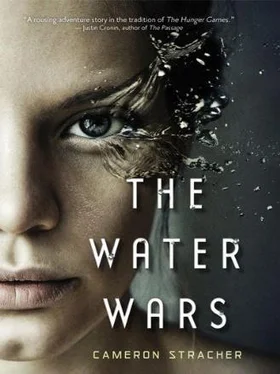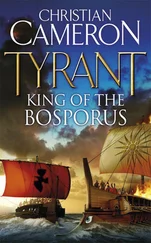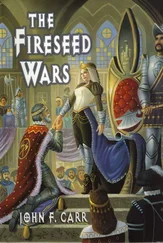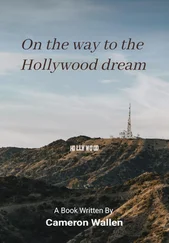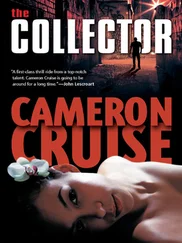“This is Kai.” It had been rude of Will to leave without even so much as a nod, but if he noticed my sarcasm, he pretended to ignore it. He said hello, then spooned himself some guacamole. Soon the boys were sitting on the couch chatting about the latest YouToo! and We! uploads. I followed their conversation like it was a Ping match: from screen to screen to screen. They could have been brothers of different mothers: one blond and smooth, the other ragged and lean, both tapered and fine.
Our father returned from the kitchen. Kai looked at his empty plate longingly. “I’ve never had guacamole,” he said.
“It’s my dad’s specialty,” I told him.
“My dad can’t cook,” Kai said.
“I haven’t met your parents,” said our father. “Are they registered?” Adults who had passed a rigorous security screening were allowed to travel freely between the lower republics and often had diplomatic or important business jobs.
“My father’s a driller.”
This wasn’t the answer anyone expected, but it made perfect sense. Drillers were wildcatters, risk-takers, and often rich—if they found water. That explained the limousine and the bodyguard.
“Why aren’t you in school?” our father asked.
“My dad needs me. He says I don’t have to go.”
“What about your mother?”
“She died when I was a baby.”
We were silent for a moment, remembering. Before our mother had gotten sick, there was little she hadn’t done: school activities, recycling duties, and lots of volunteer projects. She had been the water-smart mom in my class all through elementary school. For Will’s prom, she taught the boys how to dance. When I remembered those times, I saw our mother in a favorite green hat, her red hair corkscrewing to her shoulders. People said I resembled her, but it was only the freckles. I wished I were as pretty as my mother. Every time I looked at my own arms, my hands, and my legs, the freckles seemed to mock my pale skin and uninteresting mouth—not at all like our mother’s vibrant lips and high cheekbones. Who would want to kiss such boring lips or such a flat pale brow? I knew it was petty to think those things, but thinking about anything else only made me sadder.
“Why don’t we head to the kitchen?” said our father. “Dinner’s ready.”
He had set the table with the “good” china—plates that required sanitizing before putting them away—as well as silverware, glasses, and even smaller plates for the chips and salsa. Four fat candles glowed, spilling light onto our mother’s favorite tablecloth: silver threads in a rich red fabric. Three bowls of various sizes bubbled and steamed. The food itself was like a decoration, the brightly colored peppers contrasting with the browns of the beans and the tans of the tortillas. Everything looked perfect.
Before he sat down Kai withdrew something that looked like a thick laser pencil from his satchel. He lifted his shirt and jabbed at the fleshy side of his stomach. Then he took his place at the table and smoothed his napkin over his lap as if nothing had happened. We couldn’t help but stare.
“It’s for the sugar before I eat,” he explained.
“You have diabetes,” said our father.
“Yes. Since I was thirteen.”
Diabetes was an old-fashioned disease, one I had heard about but never seen. The bodies of people with diabetes didn’t produce insulin. Without it, diabetics could die within weeks. Kai had his insulin tucked inside a pencil: real medication that must have cost a fortune—and that kept him alive.
Despite his wealth, however, Kai ate as if he were famished. He piled his plate, then had second helpings—and thirds. Even Will couldn’t keep up. Our father poured from Kai’s jugs, and we each drank two glasses of water. I couldn’t believe how good it tasted: crisp and pure, almost like nothing at all. There was no bad aftertaste, no lingering hint of salt or algae. I held the glass aloft, and the water sparkled gold, green, and silver in the light.
“It’s delicious,” I said.
“We drilled it from an upper-republic aquifer,” said Kai.
“I thought we had drained all our aquifers,” said Will.
“Not all of them. There are still some left—if you know where to look. You have to get beneath the surface.”
“How do you know where to look?”
“My father knows.”
Of course no driller would share his secrets. There were plenty of tales about how drillers found water—divining rods and specially trained animals, sunspots and moonbeams. But if any of these methods worked, there were no screens verifying it and no witnesses except the driller himself and his closest confidantes. Water was money, and money was power, and no one would give up one without the promise of the other.
“Once there was water flowing down in rivers from the mountains into the sea,” said our father.
“They were thousands of kilometers long,” added Kai. “During the rains they would flood and wash everything away.”
“Yes. You could drink it and bathe in it. People even used the rivers to clean their clothes.”
When the teachers taught about that time, they made it seem as if the rivers were viewed as inconvenient and expensive highways, wasted resources pouring out into the ocean. Now dams caught all the water, powered turbines, and irrigated the land. Water was too valuable to let it flood the prairies and spill into the sea.
“Your mother and I sailed on a river once,” said our father. “It was thick, fast, and, in some places, hundreds of meters deep.”
“When was that?” I asked.
“Before you were born. In Sahara, when it was known as Africa.”
I had never heard this story before, but I knew my father didn’t like to talk about the earlier times: the world before the wars and water shortages. When he was a boy, there were still green fields and blue lakes. Kids played sports outside, like baseball and football, that existed now only on the screens. You could lie in a tub filled with warm water for no reason except to relax. It seemed foolish and wasteful and wonderful—to live as if the sky were endless and time itself had no measure.
“Do you think we’ll ever be able to travel down a river again?” I asked.
“No.” Our father shook his head sadly. “But long after people are gone, the rivers will return.”
I had never heard our father talking like this, and I wondered if Kai’s presence had loosened his tongue.
Then Kai spoke. “I know a river.”
“Where?” I asked.
“I can’t say.”
“Can you sail down it?”
Kai ignored my question. “My father told me.”
“Tell us,” said Will. “We can keep a secret.”
“I promised my father.”
“If your father knows a river,” said our father, “he should tell the government.”
Kai laughed. He didn’t sound like a kid at all. His laugh was scratchy and untidy, like an adult cackling at a dirty joke. To tell the truth, it scared me a little. “The government is stupid,” he said.
This was scandalous. Even Will seemed shocked. No one said that about the government. It could get a person—even a teenager—arrested.
“Kai,” our father said gently. “We don’t say those kinds of things.”
“Why not, if they’re true?”
Our father sighed and looked down at his hands. Then he looked up and said, “These are difficult times, Kai. It’s not like when I was growing up. We have to watch what we eat and drink and be careful of what we say. The world is a dangerous place, and the government is just trying to protect us. There are bad people out there who want to do bad things. Sometimes, to protect all of us, some of us can’t say everything we want to say.”
“It’s about the water, isn’t it, Dad?” asked Will.
Читать дальше
